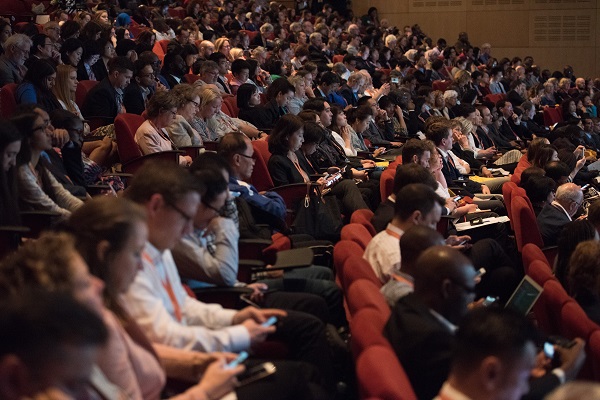
World Tobacco Conference opens in South Africa
The Director-General of the World Health Organisation (WHO), Dr Tedros Adhanom Ghebreyesus, has called on leaders across the globe, especially Africa, to intensify their efforts in the fight against tobacco use.
While admitting that some gains had been made in the fight, he emphasised that there was the need for continuous global collaboration to be able to do more in order to win the fight since it was not an easy task.
Advertisement
“It is fitting that we are meeting in Africa because it is ground zero for the war on tobacco. Africa is at the heart of the Sustainable Development agenda, but is also seen as a growth market for the tobacco industry.
“Africa has made great strides on some health issues, such as HIV/AIDS, but the tobacco problem is in its early stages and is not being given sufficient attention, hence the need for leaders to pay critical attention in that regard,” he said.
Dr Ghebreyesus made the call when he and the South African Minister of Health, Dr Aaron Motsoaledi, jointly opened the 17th World Conference on Tobacco or Health (WCTOH), in Cape Town, South Africa early today (Wednesday).
Theme
The three-day conference is on the theme “Uniting the World for a tobacco-free generation,” and is being organised by the International Union Against Tuberculosis and Lung Disease, with the WHO as the co-sponsor.
The triennial conference has brought together more than 2000 delegates including healthcare professionals, policymakers, academicians, scientists, non-governmental organisations (NGOs), civil society organisations (CSOs), and public officials working on all aspects of tobacco control from 100 countries to find a common ground in the fight against the drug.
Participants will be holding series of plenary sessions within the three days, and share research findings on some studies that have been done on tobacco, and what needs to be done to end the danger its usage poses to human lives.
Key areas
According to Dr Ghebreyesus, there were three key areas leaders needed to focus immediately in order to win the fight.
“First, we must focus on accelerating implementation of the Framework Convention on Tobacco Control, especially in developing countries,” he said, adding that the convention had guidelines on implementation that would help individual countries to find a way to incorporate in their national laws and regulations.
In order to offset the cost that tobacco use had on the global economy, he was of the view that countries could raise taxes on cigarettes by a high margin to discourage the import.
Dr Ghebreyesus further called for the elimination of illicit trade in tobacco products.
“The legal cigarette market is bad enough. But the illicit trade of tobacco products creates a shadowy market that not only destroys health, it fuels organised crime and deprives governments of tax revenues,” he stressed.
Global campaigns
As part of his efforts in the fight against tobacco sale and use, the WHO Global Ambassador for Non-communicable Diseases, Mr Michael R. Bloomberg, announced the launch of a global campaign dubbed Stopping Tobacco Organisations and Products (STOP) that would carry out series of campaigns and monitor the deceptive tactics of the tobacco industry, and create the necessary public awareness.
Mr Bloomberg, who has pumped millions of dollars in the fight against tobacco use across the world, reaffirmed his commitment to the call, and said he was fully prepared to go all out to save human lives as a result of the tobacco use.
For his part, Dr Aaron Motsoaledi said the South African government had put the necessary measures in place to control the use of the drug, even though he admitted that it still persisted in parts of the country.
Sharing some startling statistics on the dangers of the drug, he indicated that research had shown that the number of smokers in Africa would increase by 40 per cent by the end of 2020, saying that should call for worry among leaders on the continent.
In countries such as Malawi, the drug is seen as green gold because it contributes heavily to its national economy, and that must not continue.



